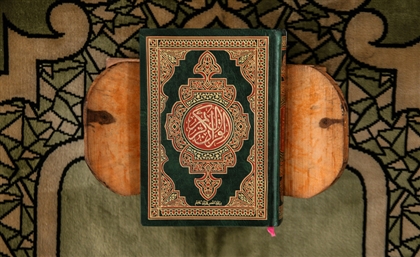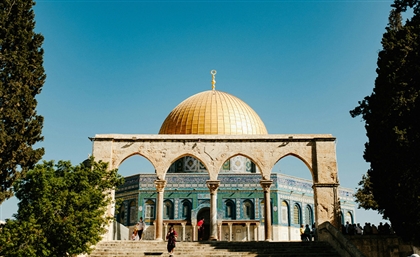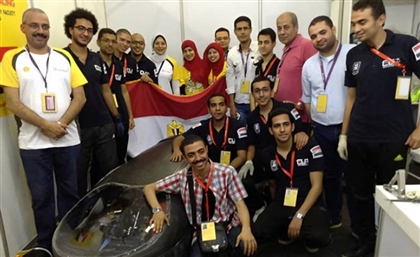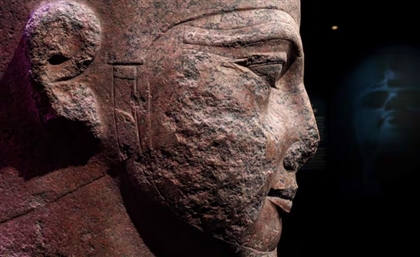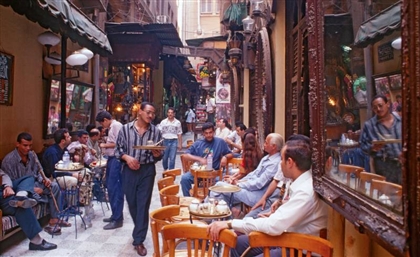The Humanity Of The Mugamma
Everyone complains about the Mugamma; Egyptians, Bedouin, foreigners. Especially foreigners...
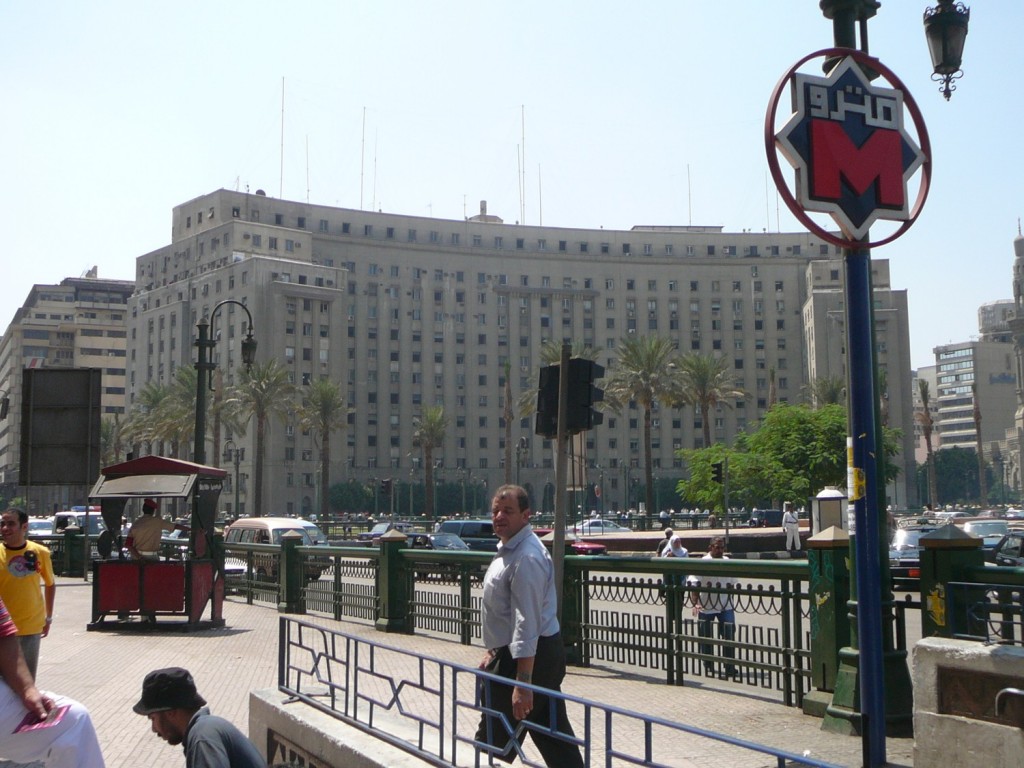
Mugamma has a deserved reputation as a monument to the overbearing power of the state. A Kafkaesque labyrinth apparently purpose built to bemuse all who enter, the massive building stands sentinel in the heart of Cairo and resolutely refuses to concede ground to the newly iconic status of Tahrir Square, which sits in its grey shadow.
It is known as a grotesque orifice of officiousness, a black hole of bureaucracy.
There are countless stories detailing the bureaucratic nightmares the place has spawned. People wait hours, even days, to have their permissions, registrations and visas stamped and authorised. The hubbub is relentless as sweaty mobs of men and women jostle around counter windows, shouting in a hundred different dialects at the stony-faced officials behind the glass, proffering their documents, standing on tiptoes and arching their backs to catch the eye of the jobsworth who wields ultimate power.
But the building is home to more than just mindless apparatchiks insensibly processing paperwork. It is well to remember, especially during the historic period in which Egypt finds itself, that the people who work there are people too.
The other day I steeled myself to enter the house that sends you mad. I was well prepared, having been there before I knew the score—which windows to go to, which forms to fill out and where to buy the rinky-dink stamps for my visa renewal. I was armed with passport photos, photocopies and a belly full of coffee.
My visit was brief since I was able to wend my way through the waves and eddies of brill-cream and leather jackets, deposit my paperwork and skip out the door with the terse report of “window 38, tomorrow, ten-o-clock” still ringing in my ears.
Thinking myself one step ahead of the game I returned the next day at nine. I confidently expected to beat the rush, stroll up to the window and process my passport in record time, before setting off for my first day in a new job. I should have known better.
To begin with the lady at window 38 sent me packing. She resonated a kind of unspeakable dignity, perched on a rickety stool amid mounds of impenetrable filing—who on earth did I think was to show up early?
I returned at ten to be told in an air of impassive authority that I ought to go to window 12. I already sensed a certain kindness behind her outwardly inexpressive features, a hint of the humanity of the Mugamma.
Undaunted I pitched up at window 12, only to be greeted with a warm smile of recognition from the woman who had dealt with me the previous day. “Some mistake,” she insisted with a smile, “you really ought to go to window 38.”
Some 30 minutes later, after shuttling back and forth between the two women and waiting in free-form queues with other baffled punters, a few illegible squiggles were written in my passport, which was then taken from me by a small dynamic woman whose job seemed to primarily involve stalking the corridors and cursing loudly. I was surprised to be bombarded with profuse apologies and assured all would be put right within the work of a moment.
It may appear ungenerous, but I felt it wise to keep an eye on my documents if I wanted to ever see them again. I tracked a lithe young man who scooped up my passport and dumped it in a pile behind a distant counter. The pile seemed destined to go unchecked for eternity. But I felt calm. My passport, there on the top of an innocuous stack of forms, felt like part of something organic, not cold or unfeeling.
I was able to relax into the rhythms of the mayhem around me and appreciate my fellow scrabblers. It would have been difficult not to, since I was jammed five deep into a jabbering mass of bodies.
A deceptively strong old man elbowed past me to the front of the mob, to general derision and hilarity. Forgetting for a while that I was really in quite a rush, and had a new job to get to, my mind wandered and I was struck by the intimacy of the crowd. Men and women of all shapes, sizes and nationalities were squished together with a distinct yet unified purpose—navigate the vagaries of the bureaucratic landscape and emerge with their sanity.
Snapping back to my own purpose I stretched my neck above the tumult to make eye contact with the dynamo lady. Using remedial Arabic and flustered hand gestures I made her aware of the inert status of my visa application—it had fallen out of the loop of due process, sat in a side-pool of still water, removed from the raging torrent.
She promptly heaved it back in to circulation and gave fiercely enthusiastic assurances it would be complete in no time at all.
Two hours later I was still waiting. But rather than a slightly simmering pan of anxiety my mind was at peace. I still needed to get to that new job, but I was in no doubt my visa was on its way, somewhere.
And then I had confirmation of administrative compassion, in the face of studied unreasonableness. My dynamo lady, along with almost the entire staff behind the counter, drifted to an outside window for a view of what sounded like a violent commotion. The throngs fell practically silent while we listened to what our paper-pushers could see.
Undoubtedly a fight was taking place, outside on the steps of Omar Makram mosque. I’d already witnessed at least three minor scuffles inside the Mugamma, the results of overwrought tension, but these sounds were different. These sounds gave no hint of theatre or face-saving outrage. Someone was being badly beaten.
Real violence, a part of the swirl of antagonism that has gripped Egypt in these days, was happening a few feet away.
When the dynamo turned back, her face was an agony of tears. The jostling and barking resumed as quickly as it had stopped. I eventually received my newly minted visa, but more than that, I took with me an impression that the cold heart of bureaucracy pumped war blood after all.
- Previous Article I Got Banged!
- Next Article The Chronicles of Nadia




